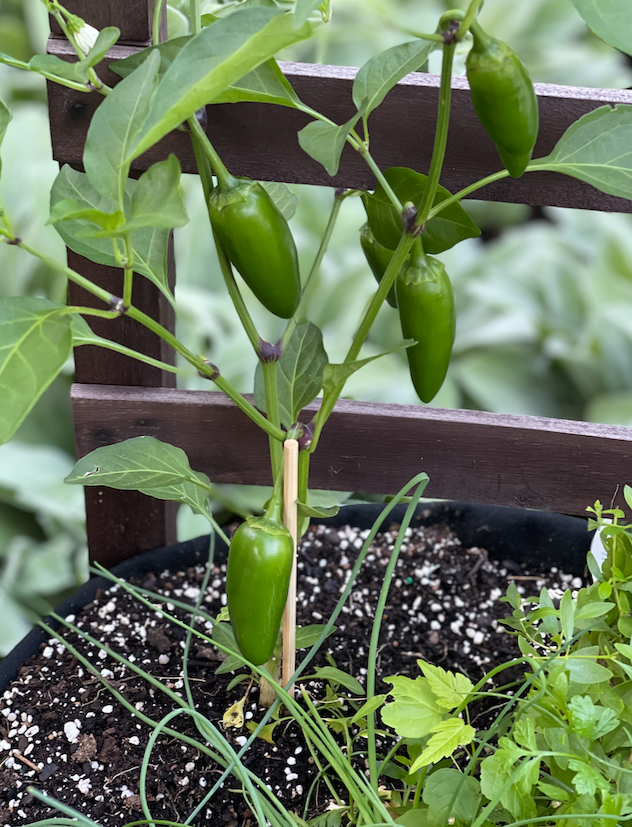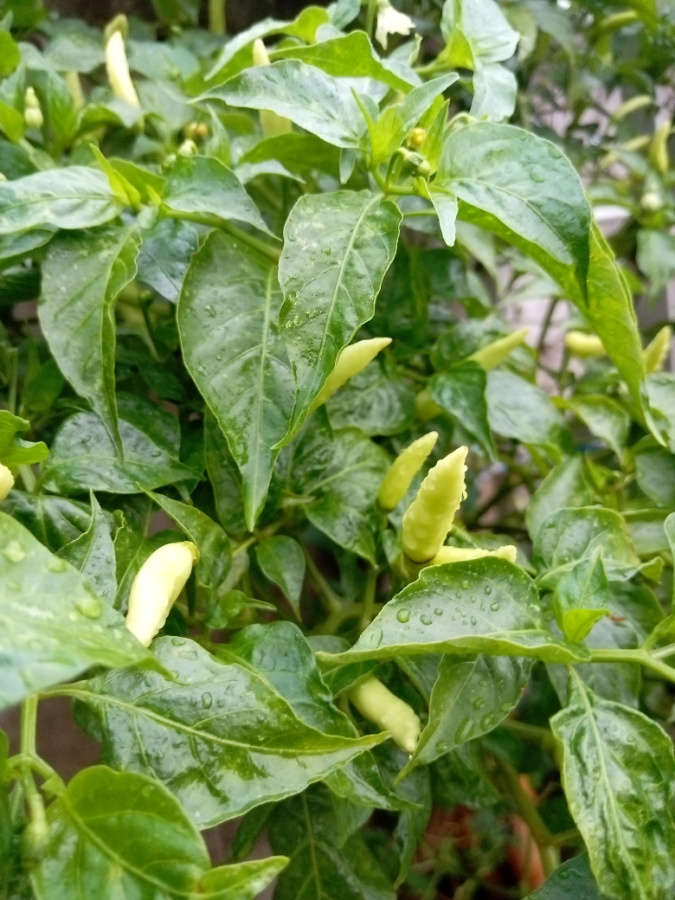Organic Vs. Synthetic Fertilizers: Which Is Best for Supporting Healthy Pepper Plants?
In the world of nurturing healthy pepper plants, the choice between natural and artificial plant foods stands as a crucial choice with far-reaching implications. While both options aim to give crucial nutrients to sustain plant growth, the nuances of their influence on the dirt, plant health and wellness, and the atmosphere spark a discussion that mirrors throughout the gardening area. Comprehending the distinct benefits and possible risks of each fertilizer kind is vital for pepper cultivators looking for to enhance their yields while keeping an eco-conscious and lasting method.
Advantages of Organic Plant Foods
Organic fertilizers supply an environmentally-friendly and lasting method to beneficial pepper plants, supplying important nutrients without making use of synthetic chemicals. These all-natural plant foods are derived from natural sources such as garden compost, manure, bone meal, and seaweed, advertising soil wellness and biodiversity. Unlike synthetic plant foods, natural alternatives release nutrients gradually, guaranteeing a steady and balanced supply for pepper plants to prosper.
One significant benefit of natural fertilizers is their capacity to improve dirt framework and water retention. By enhancing soil wellness, organic fertilizers advertise beneficial microbial activity, which assists in nutrient uptake by pepper plants. Furthermore, natural plant foods reduce the danger of chemical run-off, shielding water sources from contamination and securing the setting.
Additionally, natural fertilizers contribute to long-lasting dirt fertility by advertising the growth of advantageous soil microorganisms. These microorganisms aid break down natural issue, releasing nutrients in a type that is quickly available to pepper plants. best fertilizers for peppers. By fostering a healthy dirt ecological community, organic plant foods sustain lasting pepper farming methods that profit both plants and the setting
Downsides of Synthetic Plant Foods
Synthetic plant foods, in comparison to their organic equivalents, posture numerous downsides when utilized to nourish pepper plants, influencing both plant health and wellness and environmental sustainability. One significant disadvantage of synthetic plant foods is their propensity to leach nutrients from the dirt swiftly.
Additionally, the overuse of synthetic plant foods can add to water pollution. Excess plant foods not absorbed by plants can get rid of into water bodies, leading to eutrophication, where algae blossoms deplete oxygen degrees in the water, hurting aquatic life. Synthetic fertilizers are typically obtained from non-renewable resources, such as fossil fuels, adding to carbon emissions and ecological deterioration throughout their production.
Nutrient Absorption Contrast
Reliable nutrient absorption plays a critical role in the total health and growth of pepper plants. When contrasting organic and artificial plant foods in regards to nutrient absorption, organic fertilizers have the benefit of offering an extra well balanced and slow-release resource of nutrients (best fertilizers for peppers). Organic fertilizers consist of a selection of macro and micronutrients that are not only valuable for the plants however likewise advertise healthy soil microbial activity, which assists in nutrient uptake. On the various other hand, artificial fertilizers commonly provide a quick release of nutrients, which can cause seeping and runoff, resulting in lower nutrient absorption prices by the plants.
Moreover, natural fertilizers improve soil framework and water retention capacity, allowing pepper plants to gain access to nutrients a lot more effectively. This better soil high quality assists in origin advancement, making it possible for better nutrient absorption. Synthetic plant foods, although at first increasing plant growth due to their high nutrient focus, might prevent lasting nutrient absorption by derogatory soil health and wellness in time.
Environmental Impact Factors To Consider

On the various other hand, synthetic plant foods, although usually even more promptly available and focused to plants, can have harmful effects on the atmosphere if not used properly (best fertilizers for peppers). Their manufacturing requires high power inputs, resulting in greenhouse gas emissions and adding to climate modification. Moreover, the overflow of excess synthetic fertilizers can infect water sources, bring about eutrophication and harming marine communities.
Ideal Fertilizer Practices for Peppers
To attain this, it is crucial to adhere to ideal plant food techniques customized to the certain requirements of pepper plants. One vital method is to do a soil test before applying any plant foods.
An additional vital technique is to feed pepper plants at the correct time. Usually, peppers go to my blog benefit from receiving plant food at growing and after that once again when they begin to blossom. Over-fertilizing can bring about vitamins and mineral discrepancies and hurt the plants, so it is vital to follow advised application prices.
Furthermore, choosing a well balanced plant food with an NPK ratio that matches pepper plants' demands is basic. Eventually, combining synthetic and natural fertilizers carefully can help nurture healthy and balanced pepper plants while reducing ecological impact.
Final Thought

Organic fertilizers use an environmentally-friendly and sustainable technique to beneficial pepper plants, offering crucial nutrients without the use of synthetic chemicals. Unlike artificial plant foods, natural options release nutrients gradually, ensuring a stable and well balanced supply for pepper plants to flourish.
Synthetic plant foods, in comparison to their useful reference natural counterparts, position different negative aspects when used to nourish pepper plants, affecting both plant health and wellness and ecological sustainability. When contrasting synthetic and organic fertilizers in terms of nutrient absorption, organic plant foods have the benefit of offering a much more balanced and slow-release resource of nutrients.Moreover, organic fertilizers boost dirt structure and water retention capacity, permitting pepper plants to accessibility nutrients much more efficiently.